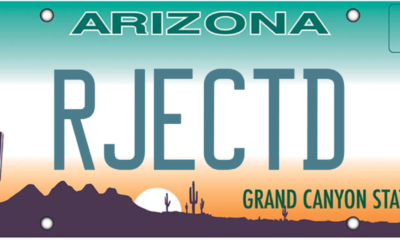Arizona Department of Education
Moms Take Legal Action Against Dept. of Ed Over Arizona AG’s ESA Mandates

Two Arizona mothers are challenging the state’s Department of Education over new curriculum requirements associated with the Empowerment Scholarship Account (ESA) program. This initiative, guided by Attorney General Kris Mayes, has become the center of a legal dispute.
The ESA program provides parents with a debit card to cover various educational expenses, such as private school tuition, homeschooling supplies, or college savings. Initially established in 2012, the program saw significant growth in 2022, transitioning from a limited program for about 12,000 students to one available to all approximately one million K-12 students in Arizona. As of now, over 78,600 students are enrolled.
In July, Mayes’ office informed John Ward, the ESA program director, that reimbursing parents for supplemental educational materials without verifying their necessity could violate state law. Mayes warned of potential fraud and directed him to cease this practice.
Despite his disagreement with Mayes’ interpretation, Republican Superintendent of Public Instruction Tom Horne chose to comply with her directive, stating that legal analysis indicated he would likely lose if he contested the decision. “Getting into a fight and losing would be much more damaging,” he noted.
The Department of Education’s new documentation requirements took effect on July 3, shortly after Mayes’ warning. Subsequently, two mothers, Velia Aguirre and Rosemary McAtee, filed a lawsuit in Maricopa County Superior Court on September 23. They are represented by the conservative Goldwater Institute.
Aguirre, who homeschools three children, and McAtee, who homeschools seven of her nine children, claim the new rules impose undue burdens. Aguirre noted that after the program’s requirements changed, she faced denials for educational materials not linked to specific curricula, despite their educational value.
McAtee, similarly affected, reported denials for educational books, including titles aimed at teaching colors and historical figures. Both mothers appealed to the Arizona Board of Education but were unsuccessful.
John Thorpe, an attorney for the Goldwater Institute, argues that the ESA program permits reimbursement for supplemental materials without requiring proof of their curricular necessity. He contended that the 2023-2024 ESA parent handbook supports this, while Mayes asserts it’s inconsistent with state law.
“The Attorney General has simply stated what is required by law,” said Mayes’ spokesman, emphasizing the need for documentation to prevent misuse of taxpayer funds, referencing past cases where voucher money was misused.
Thorpe also highlighted that the new requirement aggravates a backlog of purchase orders and restricts parental choice in educational resources. Both Aguirre and McAtee viewed the new requirements as limiting their ability to provide effective education for their children.
The ESA program, championed by Republicans as a school choice victory, faces criticism from Democrats for allegedly diverting funds from public education and benefiting wealthier families. The fiscal impact of the program is significant, prompting reports that the net cost could rise from $332 million last year to an estimated $429 million this year.
Further complicating matters, Thorpe pointed out that the 2020 amendments to the program were intended to broaden allowable uses of ESA funds. Former state senator Sylvia Allen, who sponsored those amendments, emphasized the goal of enabling parental reimbursement for a wider range of educational materials.
As this lawsuit unfolds, Horne anticipates that the court will clarify the legalities surrounding the ESA program and its requirements. Mayes remains steadfast in her commitment to accountability regarding the educational use of tax dollars.

















